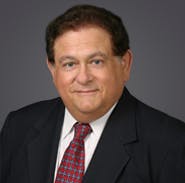In what apparently is a case of first impression, an administrative law judge (ALJ) of the federal Occupational Safety and Health Review Commission (OSHRC) recently decided that the Occupational Safety and Health Act (OSH Act) does not authorize OSHRC to order so-called “enterprise-wide” abatement. Under that theory of liability, the Occupational Safety and Health Administration (OSHA) maintains that when a violation is proven at an employer’s worksite, OSHRC has the statutory authority to require that employer to abate the same or similar hazards at its other worksites that were not the subject of the litigated citation.
This theory is premised upon OSHA’s assertion that section 10(c) of the OSH Act empowers OSHRC, not only to affirm citations and impose penalties, but also to award “other appropriate relief.” OSHA and the U.S. Department of Labor’s Office of the Solicitor have relied on this ambiguous statutory language to assert that OSHRC has the authority to grant the expansive remedy that OSHA has sought.
OSHA first pursued the theory of enterprise-wide relief in a highly publicized case against the U.S. Postal Service (USPS). In 2010, OSHA issued citations concerning electric safety-related work practices at a USPS facility in Rhode Island. Based on that citation, which the USPS initially contested, OSHA alleged in the complaint that it filed with the OSHRC that the commission should award it “enterprise-wide” relief. This would require the USPS to “cease and desist” from work practices like those that were cited and to abate similar hazards throughout the nation in the same manner as OSHA alleged were required at the cited facility in Rhode Island.
The U.S. Postal Service did not challenge the Commission’s statutory authority to award such relief. After several years of negotiations, OSHA and the USPS reached a nationwide settlement with no decision on the merits of OSHA’s theory.
OSHA later sought enterprise-wide relief against a grocery chain in New England. There, too, the matter resulted in a negotiated settlement under which the grocery chain agreed to implement a variety of measures at its facilities, beyond the one that was the subject of the citation that initiated litigation.
Delta Case
In a recent case, Delta Elevator Service Corp., dba Delta Beckwith Elevator Co., (OSHRC No. 12-1446), OSHA cited the employer for three violations of general industry standards associated with the employer’s work in repairing elevators. OSHRC ALJ William S. Coleman rejected the citations on several grounds.
In the course of the litigation, however, OSHA asserted that apart from the merits of the citations issued at the subject worksite, OSHRC had the authority, under section 10(c) of the OSH Act, to impose “enterprise-wide” relief at other worksites at which Delta performed elevator repair work.
Delta resisted this allegation, and the ALJ upheld its position. OSHA had claimed that Delta had service contracts for approximately 2,200 locations that involved elevators, escalators and lifts. The agency maintained that the hazards cited at the jobsite in question were likely to be present wherever Delta performed its work.
The judge found, however, that “there is no commission or other precedent holding that such abatement may be directed pursuant to the ‘other appropriate relief’ clause of section 10(c) of the OSHAct.” The judge also said that under OSHA’s theory, the commission would be asked to grant relief “based solely upon claimed violations for which the Secretary presented no evidence as to the time, location or place of the claimed violations, and under the most general evidence respecting the circumstances of the claimed violations.”
Strictly speaking, it is not entirely clear that the judge needed to reach the issue of enterprise-wide relief, having vacated the Delta citations. Nonetheless, it is significant that he chose to do so, and that he squarely rejected the argument that OSHA and the Office of the Solicitor of Labor have been advancing under section 10(c) of the Act. If nothing else, it may be seen as a “shot across the bow” at OSHA and the Office of the Solicitor, strongly suggesting that this much-ballyhooed theory of enterprise-wide relief simply is legally wrong.
As of this writing, it remained unclear whether OSHA would seek discretionary review of Delta by the full OSHRC or whether a commission member would direct review if requested.
If it pursues the case on review, OSHA could risk that the theory of enterprise-wide relief would be tested for the first time on review by the commission and perhaps in a U.S circuit court of appeals if the commission were to reverse the judge on this issue. As such, it would seem to be something of a high stakes gamble for OSHA and the Office of the Solicitor to pursue this issue. An unreviewed ALJ decision, however provocative, is not considered to be legal precedent under OSHRC law.
Impact on Employers
Some employers faced with demands for enterprise-wide relief have been reluctant to undertake the litigation that would be necessary to challenge the merits of OSHA’s theory. Many in the employer-side OSHA bar, however, have seriously questioned the validity of the agency’s theory ever since it was first announced.
Having openly touted the merits of the theory, it will be interesting to see now if OSHA exposes its statutory argument to examination by OSHRC, and perhaps a federal appellate court. Indeed, to our knowledge, OSHA has not yet been placed in the position of defending and explaining the merits of its statutory analysis in a legal pleading.
At a minimum, employers against whom enterprise-wide relief is sought in a citation contest case should consider questioning OSHA’s authority to pursue it and should seriously consider challenging the assertion of OSHRC’s jurisdiction to order such relief – perhaps in an initial motion to dismiss the claim on jurisdictional grounds before the merits of a citation are litigated. Even if the Delta decision is not reviewed, other OSHRC ALJs will no doubt be well aware of its existence.
Attorney Stephen Yohay is shareholder in the Las Vegas office of Ogletree Deakins. He is a nationally recognized expert in occupational safety and health law. He represents employers nationwide in federal and state OSHA inspections and challenges to citations. Yohay has broad experience in assisting employers in addressing OSHA enforcement issues, including managing aggressive OSHA investigations and collateral liability issues following serious or catastrophic accidents.


